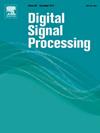Semi-supervised sound event detection with dynamic convolution and confidence-aware mean teacher
IF 2.9
3区 工程技术
Q2 ENGINEERING, ELECTRICAL & ELECTRONIC
引用次数: 0
Abstract
Recently, sound event detection (SED) has made significant advancements through the application of deep learning, but there are still many difficulties and challenges to be addressed. One of the major challenges is the diversity of sound events, leading to substantial variations in time-frequency domain features. Additionally, most existing SED models can not effectively handle sound events of different scales, particularly those of short duration. Another challenge is the lack of well labeled dataset. The commonly used solution is mean teacher method, but inaccurate pseudo-labels could lead to confirmation bias and performance imbalance. In this paper, we introduce the multi-dimensional frequency dynamic convolution, which endows convolutional kernels with frequency-adaptive dynamic properties to enhance the feature representation capability. Moreover, we propose dual self attention pooling function to achieve more precise temporal localization. Finally, to solve the incorrect pseudo-labels problems, we propose the confidence-aware mean teacher to increase pseudo-labels accuracy and train the student model with high confidence labels. Experimental results on DCASE2017, DCASE2018 and DCASE2023 Task4 dataset validate the superior performance of proposed methods.
利用动态卷积和置信度感知平均值教师进行半监督声音事件检测
最近,通过深度学习的应用,声音事件检测(SED)取得了重大进展,但仍有许多困难和挑战有待解决。其中一个主要挑战是声音事件的多样性,这导致了时频域特征的巨大变化。此外,大多数现有的 SED 模型无法有效处理不同规模的声音事件,尤其是持续时间较短的声音事件。另一个挑战是缺乏标注良好的数据集。常用的解决方案是平均教师法,但不准确的伪标签可能会导致确认偏差和性能失衡。在本文中,我们引入了多维频率动态卷积,赋予卷积核以频率自适应动态特性,以增强特征表示能力。此外,我们还提出了双自注意力池函数,以实现更精确的时间定位。最后,为了解决伪标签不正确的问题,我们提出了置信度感知平均教师来提高伪标签的准确性,并用高置信度标签训练学生模型。在 DCASE2017、DCASE2018 和 DCASE2023 Task4 数据集上的实验结果验证了所提方法的优越性能。
本文章由计算机程序翻译,如有差异,请以英文原文为准。
求助全文
约1分钟内获得全文
求助全文
来源期刊

Digital Signal Processing
工程技术-工程:电子与电气
CiteScore
5.30
自引率
17.20%
发文量
435
审稿时长
66 days
期刊介绍:
Digital Signal Processing: A Review Journal is one of the oldest and most established journals in the field of signal processing yet it aims to be the most innovative. The Journal invites top quality research articles at the frontiers of research in all aspects of signal processing. Our objective is to provide a platform for the publication of ground-breaking research in signal processing with both academic and industrial appeal.
The journal has a special emphasis on statistical signal processing methodology such as Bayesian signal processing, and encourages articles on emerging applications of signal processing such as:
• big data• machine learning• internet of things• information security• systems biology and computational biology,• financial time series analysis,• autonomous vehicles,• quantum computing,• neuromorphic engineering,• human-computer interaction and intelligent user interfaces,• environmental signal processing,• geophysical signal processing including seismic signal processing,• chemioinformatics and bioinformatics,• audio, visual and performance arts,• disaster management and prevention,• renewable energy,
 求助内容:
求助内容: 应助结果提醒方式:
应助结果提醒方式:


